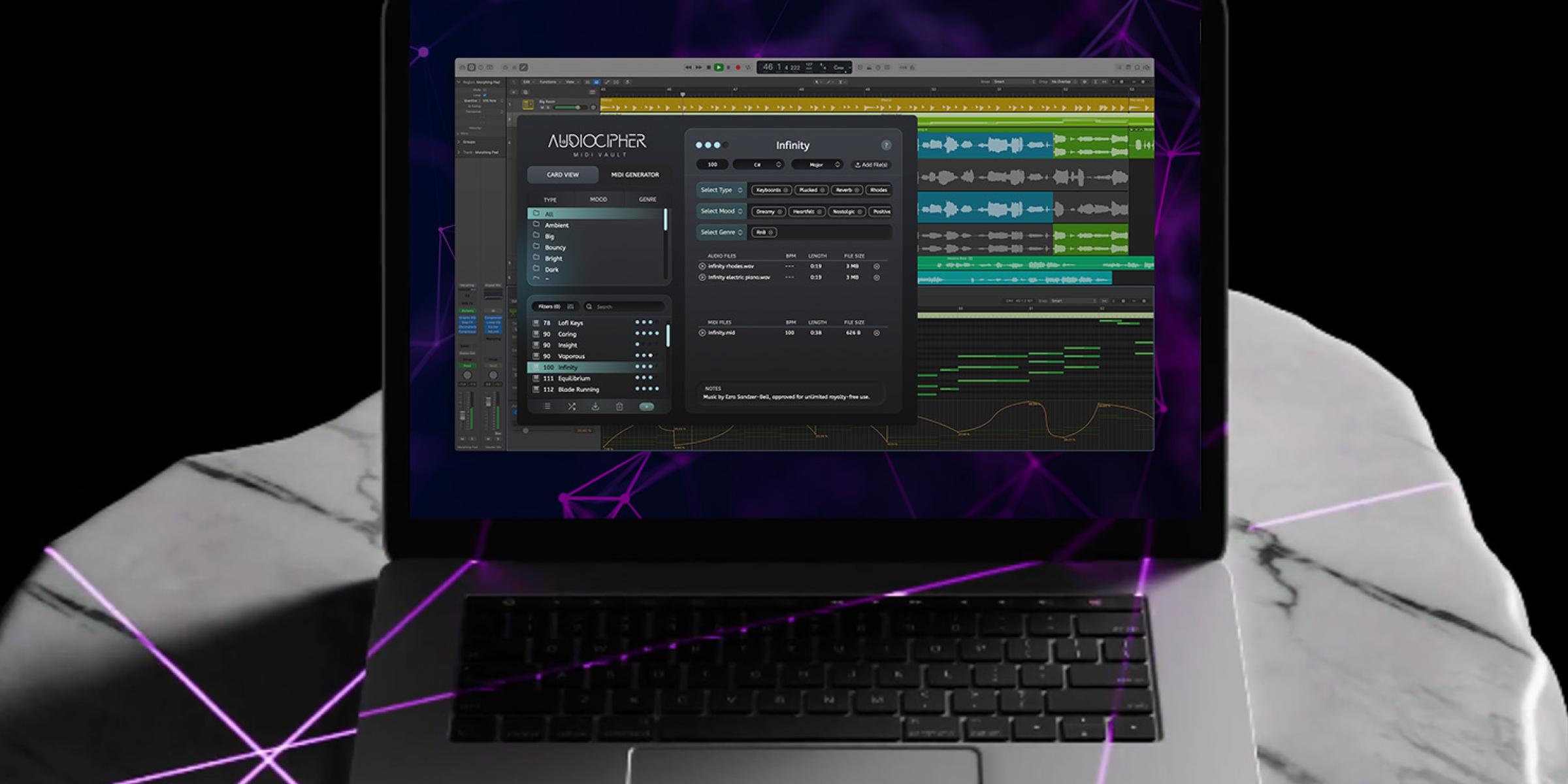AudioCipher Technologies has just announced the release of Version 4.0: The MIDI Vault.

Founded in 2020, the company has slowly made a name for itself as the only text-to-MIDI chord and melody generator on the market. Their latest plugin improves on the classic algorithm with new chord inversion and note-joining buttons, producing better voice leading and compositions.
The MIDI generator has also acquired a new Save button that acts as a bridge into the new MIDI and audio file management tool called the MIDI Vault.
The MIDI Vault: A New Type of MIDI File Manager
AudioCipher’s MIDI Vault is the first file manager to bundle MIDI and audio files together in cards. Each of these cards are endowed with music metadata like BPM, key signature, genre, mood, type, and rating.
The Vault’s search and sorting options make it easier to find those cards during future sessions. It includes MIDI and audio file playback right there on the card, with the option to drag and drop files right into a DAW’s audio timeline.
As we know, virtual instruments have a big impact on the way MIDI chords and melodies sound. Often when composing for MIDI, musicians have a specific instrument or set of instruments in mind. Bounce each variation as an audio file and store them in a single card.
Cards can hold a near-unlimited number of MIDI and audio files. Use the card’s “notes” section to jot down import information about the instruments or effects that were used.
Files are stored locally on a hard drive, not on the cloud. Export the vault’s entire card collections as a single .AUCI file and store them on external hard drives to save space. Share those AUCI collections with other AudioCipher users as well.
Erase the collection and start fresh at any time, knowing that it’s easy to re-import and integrate any collection with the click of a button.
New Text-to-MIDI Generation Features
AudioCipher began as a text-to-MIDI generator and the company has continued to improve on that algorithm in the latest version. The app converts words to MIDI using a musical cryptogram, comparable to the Engima machine.
Users choose a key signature (scale/mode) and BPM, along with optional chord extension settings. A rhythm slider is provided to control or randomize note durations, including triplets.
When users find an idea they like, the save button spawns a new card in the MIDI vault. Their MIDI file is added automatically, carrying its BPM and scale metadata along with it.The quality of AudioCipher’s output has increased significantly thanks to new inversion and note-joining options.

Visit the audiocipher homepage to learn more: https://www.audiocipher.com.